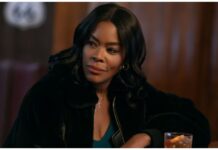
Director Paul Dalio was in New York recently with cast members at the Central Park South Ritz-Carlton to talk about his important and relevant film that deals with the bipolar disorder that not only ravages those affected, but those around them. And the sad reality is that most of the populace knows someone struggling with it.
Opening in wide release on February 19, “Touched with Fire” touches on a mental disorder that is a way too familiar mental challenge for many—as they say—who are to home. Dalio struggled with being bipolar for years. [See https://eurweb.com/2016/02/film-strip-katie-holmes-tackles-mental-illness-touched-fire/]
Paul, was making this film a healing experience for you?
PAUL DALIO: Making the film was definitely a healing experience. When you’re diagnosed with bipolar, you know you’re no longer going to be the person you used to be. You also don’t feel seen for who you are by society. It felt like I was stuck between who I used to be, and who I wanted to be seen as now. So making the film really felt spiritually liberating.
Also, can you talk about your relationship with Spike Lee, and how that influenced you getting the film made?
Spike was one of my professors at NYU. He was one of the few people who saw anything in me, because I was over-medicated during my time there, and I didn’t feel anything. I had written a rap musical when I was going through the swing from mania to depression. He looked at it and said, ‘I’ll executive produce it.’ He didn’t just do that for me; he also executive produced one of my classmates’ films.
When I started working on the rap musical, my wife started pushing me to make ‘Touched with Fire.’ She said, ‘You were going through hell when you wrote the rap musical, but you didn’t come out of it with a story that could help other people come out of their illness. She kept pushing me to show the idea to Spike and I did, and he supported it.

Christine, what drew you to this story?
CHRISTINE LAHTI: I was immediately drawn to this story because of my own experience with bipolar-not personally, but my sister struggled with the disease for over 25 years, and then she took her life. My sister just didn’t find the right cocktail of medication. I feel like if she were alive today, she would find something that would help her, whether it was medication and/or mediation.
When my sister was depressed, she was like Katie Holmes’ character when she was depressed. She would call it being brain dead. When she was manic, she was like Katie and Luke’s characters when they were manic. She often went into an almost psychotic mania. Her life was like a roller coaster, and by the end, she had had enough.
Like everyone who has been touched by suicide, there are a bunch of stages that you go through, including anger, rage and guilt. You think, why didn’t I do this? If only I had done that. I still have those thoughts. But then there’s an understanding of why she made that choice. She was the most courageous, strongest and resilient person I have ever known. I understood this mom and her daughter. I also feel like we have come a long way in treating bipolar.
When I met Paul, I felt inspired by his ability to be able to live such a healthy life, and find stability. To see him live a life that’s so productive and creative, and celebrate bipolar in such a way that this film does, without demonizing it, was so special. As a society, we think, ‘Oh, you’re bipolar, too bad. You’re going to have to deal with that your entire life.’ I think Paul has put a positive spin on this disease in the movie. through the ringer.
There is a tendency for people who have bipolar to stop taking their medication, and instead become dependent on drugs and alcohol. Can you talk about that side of the illness, and incorporating it into the film?
PD: Yes, I wanted to show you that aspect through the characters’ eyes, including the seduction of the mania and how ecstatic it is. These are people, who by nature, need to feel the deepest extremes of emotions, and their contrasting feelings when they’re on their medication. These people, who are meant to feel things extremely deeply by nature, are instead told to feel nothing, and that can be restraining for them. I think it was important to show that, because people don’t seem to understand that concept.
LUKE KIRBY: When I read the script, I was very struck by the voice that was coming off the page. It felt very raw and intent on getting some kind of word out there. I wasn’t sure what that word was at the time, but I felt like it was a message about more than just any one kind of condition. I felt like it was a story that was screaming to be told. Then when I met Paul, I really became struck by what he was trying to say. It’s very striking how many lives that bipolar has struck. I’m delighted to see people who have lived with, or among, it to stand up and talk about it.
Syndicated Entertainment journalist Marie Moore reports on film and TV from her New York City base. Contact her at [email protected]
Facebook.com/thefilmstriptm Twitter: @thefilmstrip
We Publish News 24/7. Don’t Miss A Story. Click HERE to SUBSCRIBE to Our Newsletter Now!





